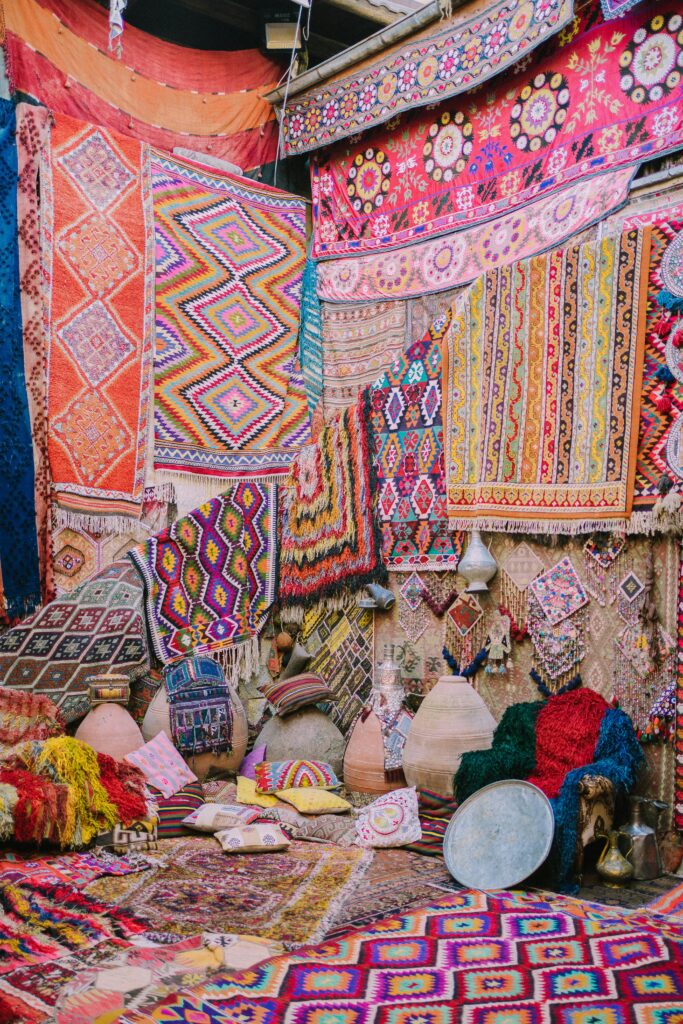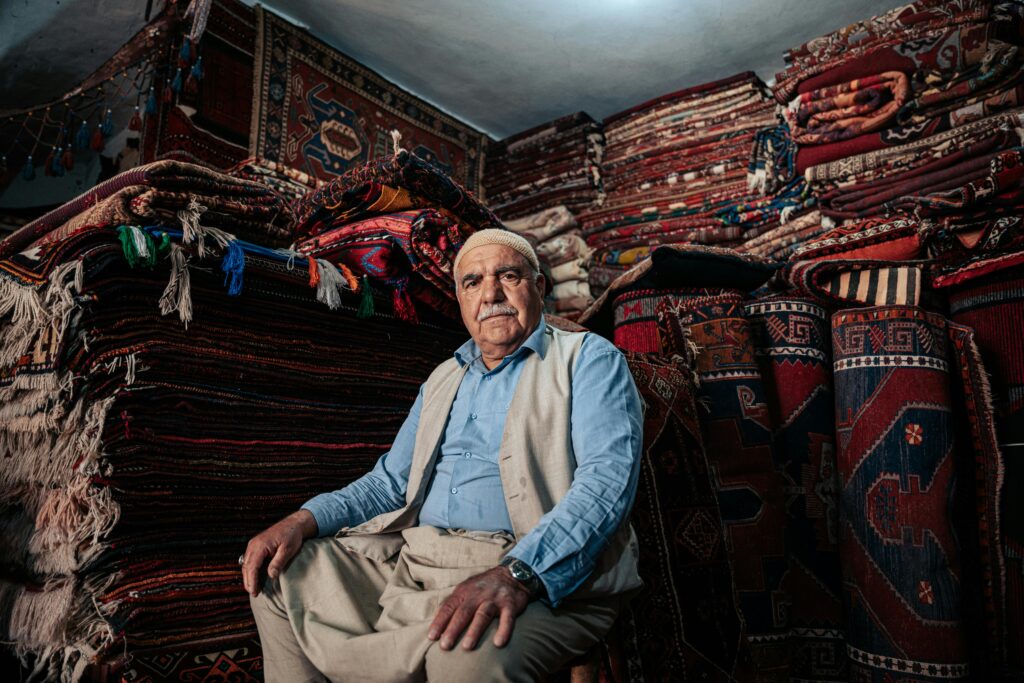TravelLocal – It’s About Righting A Wrong And Playing Fair
By Huw Owen: Co-founder, TravelLocal
Here at _For Good, we had a wonderfully in-depth conversation with TravelLocal’s co-founder Huw Owen. Exceedingly easy to talk to, Huw was generous with his time and gave us more than we could have imagined. The only issue was, what to leave on the cutting room floor, or not!
Huw Owen:
‘You’re gonna ask me really, really difficult questions. And then this is going to end up as the sort of scandalous news article in The Guardian or something? Come on guys give me a break!’
(_For Good can confirm there were no scandals left on the cutting room floor…or were there!)
_For Good: Can you tell us about the founding principles of TravelLocal, and how the idea of the company came about?
Huw Owen:
When I joined the travel industry, it was coincidentally around the same time as the emergence of digital and e-commerce.
You could say the emergence digital helped shape the founding principles of TravelLocal and a growing belief that there was an unfairness within the traditional travel industry model.
Increasingly, we found ourselves looking at the supply chain and asking:
“What are all these people for?”
“And what do they actually do?”
“Where are they? North London?”
“Do these people actually know all the destinations, intimately?”
Digital allowed us to bypass this supply chain and connect directly with those companies on the ground. Companies that would otherwise be at the very end of the supply chain and as a result, gain the least. Even though fundamentally, it’s they who had the knowledge and did the most.
TravelLocal is about supporting the local economies, giving customers a genuine first-hand insight and experiences. A better trip! At the same time, righting a wrong and playing fair.” In a literal sense, more dollars are going straight into the destination.
“If you’re travelling to Costa Rica, don’t stay at the Hilton (no offence to the Hilton’s of this world, but you know, you could be in Birmingham, right?).”
_For Good: Can you give us an example of how this benefits locals and their communities
Huw Owen:
These destinations, have entrepreneurial ecosystems. And when you go to very poor or developing countries, what you find is that the entrepreneurial ecosystem is tiny, as there’s often little room to build a business. As a result, people take massive risks when they try. If you ever want to see real entrepreneurship, don’t talk to people like me, go to somewhere like Cambodia and talk to a local Cambodian entrepreneur and you’ll see what it really looks like, as people are really losing their shirts in that economy.


TravelLocal supports those locally owned, locally operated businesses. So, when we’re in Cambodia, it’s a Cambodian company. When we’re in Peru, it’s Peruvian company, when we’re in Costa Rica, Costa Rican company, etc. The essential point is, they have to be locally owned. And that’s because we want to support that entrepreneurial ecosystem.
If you’re putting money into the destination economy and you’re supporting these local entrepreneurs, they’re going to employ more local people.
Naturally, not all customers bring this philosophy of buying local and buying local thereafter with them. This is something we’re hugely encouraging. After all, if you’re travelling to Costa Rica, don’t stay at the Hilton (no offence to the Hilton’s of this world, but you know, you could be in Birmingham, right?), stay in a Costa Rican hotel! Once you do it, you don’t really turn back.
It’s about putting more money into the local economy. Spending locally, buying locally.
“We always had it in our minds that we would do something like this where we give away 1% of our net revenue”
__For Good: For some, ‘Sustainability’ is a misused word. How do you talk about ‘sustainability?’
Huw Owen:
There’s environmental and there’s a kind of a wider picture. And we’re committed in both.
There are many ways to define sustainability. Let me unpack it.
At TravelLocal we’re on a decarb journey ourselves. So, we’ve done our baseline emissions. We’re decarbonising from there.
We are also one of the founding signatories of the Glasgow Declaration on climate action tourism. So, by 2030, we’ll have reduced our emissions by 50%. We’re do everything we can as quickly as we can.
We are also members of Travel Life, which is a network of businesses that are committed to sustainability, which broadly defined may be decarbonisation. But it also promotes particular kinds of tours that are more sustainable and less damaging to the environment.
And then, there’s the destination. This is slightly harder to explain to the consumer, but one that’s close to our hearts. We don’t sell large cruise ship holidays. They are effectively banned on our platform. So, there’s aspects which are really bleeding into the economic sustainability of the local destination. If you’d said 20 years ago that that was part and parcel of sustainability, a minority audience would have agreed with you. Whereas now, I would say there’s a lot of people who would say, it’s a huge problem we need to solve.
__For Good: Tell us about your TravelLocal Fund for Good.
Huw Owen:
We always had it in our minds that we would do something like this where we give away 1% of our net revenue. I guess it’s inspired a little bit by the 1% For The Planet fund.
The fund is distributed across charities that fit our four key pillars of Environment, People & Society, Animal Welfare, Business As A Force For Good.
To that end, we run an internal research process, consulting everyone in the whole team, then everyone votes on which organisations we would support for that year.
So, this year we’re supporting Just a Drop, the Sustainable Amazon Foundation, Wildlife Alliance and Tree Aid.
This past year, our 1% of net revenue will equate to £60,000.
“Travel broadens the mind. It can teach you a lot about the world.
I sometimes look at the wars in Ukraine and in Gaza, and I think, what would a world look like where people don’t know that much about each other?”
__For Good: How does TravelLocal envision the future of travel? Considering the evolving trends and global challenges?
Yeah, that’s a good question. So we would like to see a lower carbon future to travel. Even heavy polluters would turn around and say we want to try and try and find a way to do this.
So, I’m hoping that in the next 5 to 10 years, we’ll see a very concerted effort to decarbonise. That doesn’t mean not travelling. It’s a bit of a trap to fall into. I think people should travel. I think it’s good for you. I think it’s good for the destination.
Travel broadens the mind. It can teach you a lot about the world.
I sometimes look at the wars in Ukraine and in Gaza, and I think, what would a world look like where people don’t know that much about each other? One where we don’t interchange and we don’t go and see each other and we don’t talk face to face, you know.
So, in many ways, I think we need to, we need to decarbonize in order to maintain all the goodness that travel brings.
Go and explore, go and have a look around, go and meet local people. It will enrich your life, it will enrich the life of the local destination, if you’re not being just clustered and farmed through the Acropolis or something, you know. So, my hope for how travel goes is that we get more and more into that world. And more and more into this sense of there being layers to a destination and go down as deep as you can.
You know, you live once right. If you’re going to go to Greece, Costa Rica, Peru or Namibia, say once, make it count.

